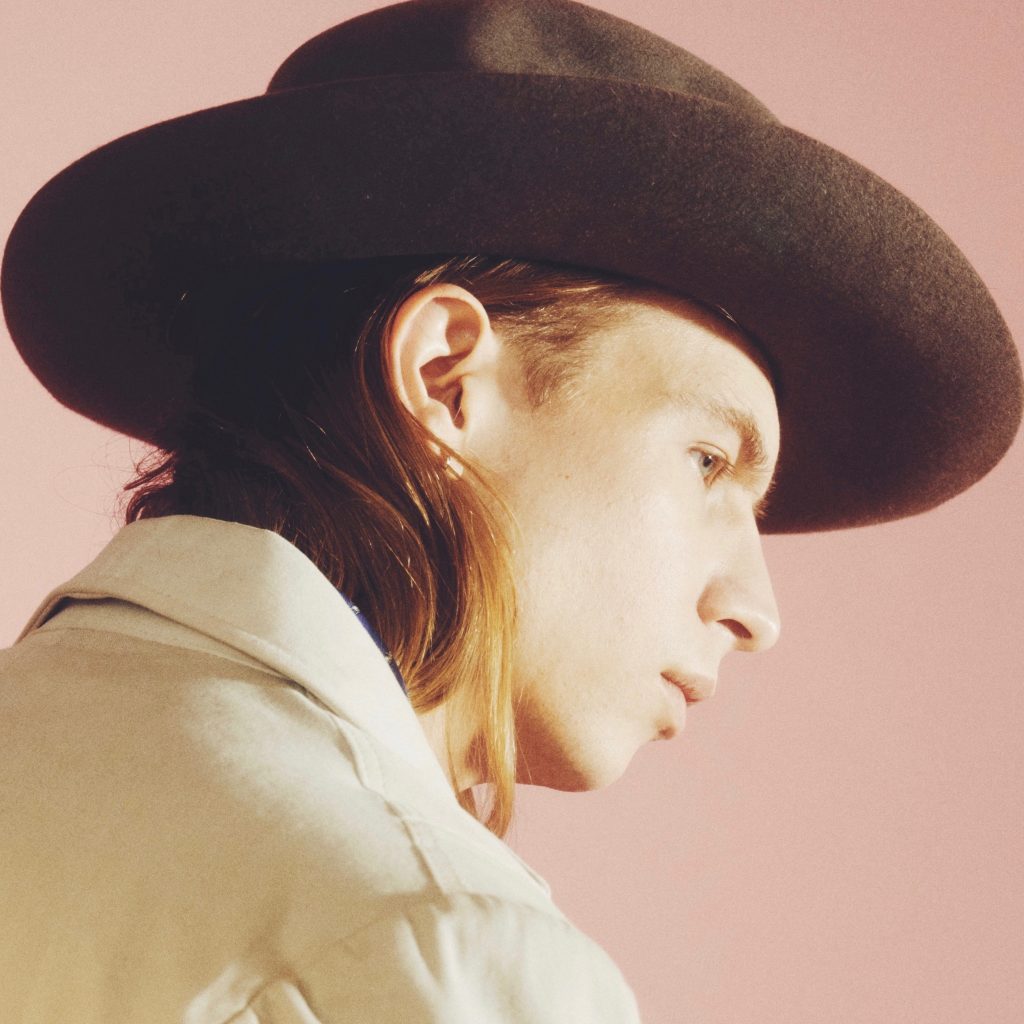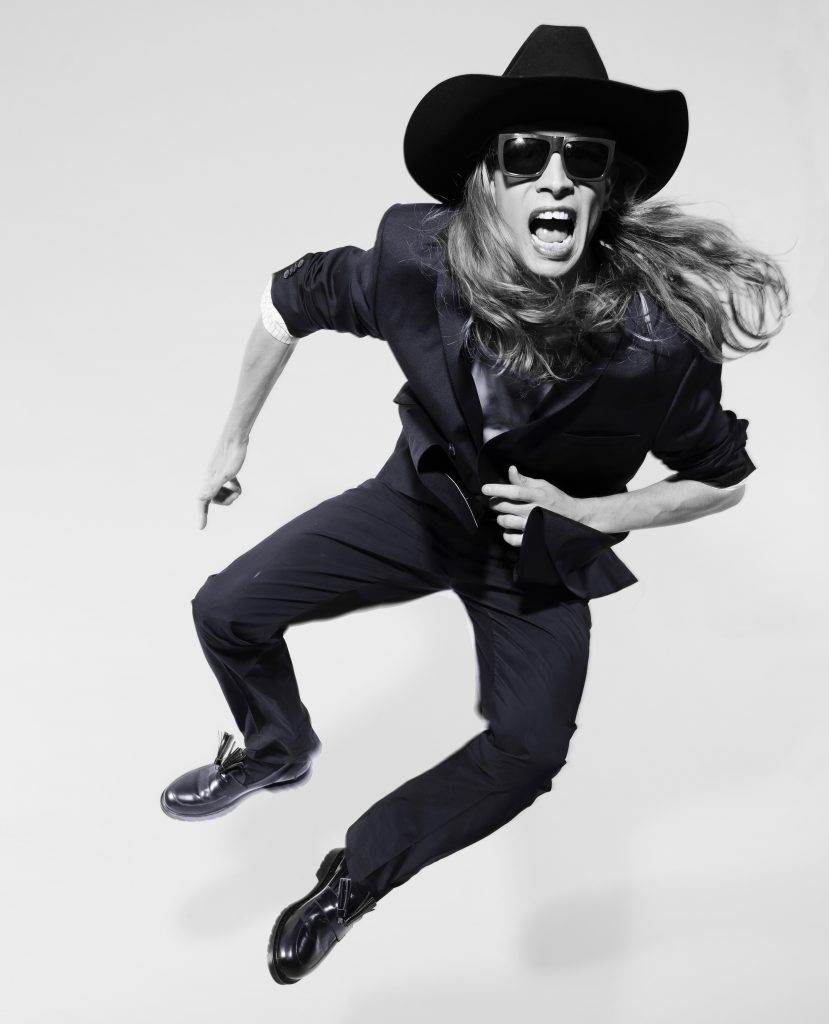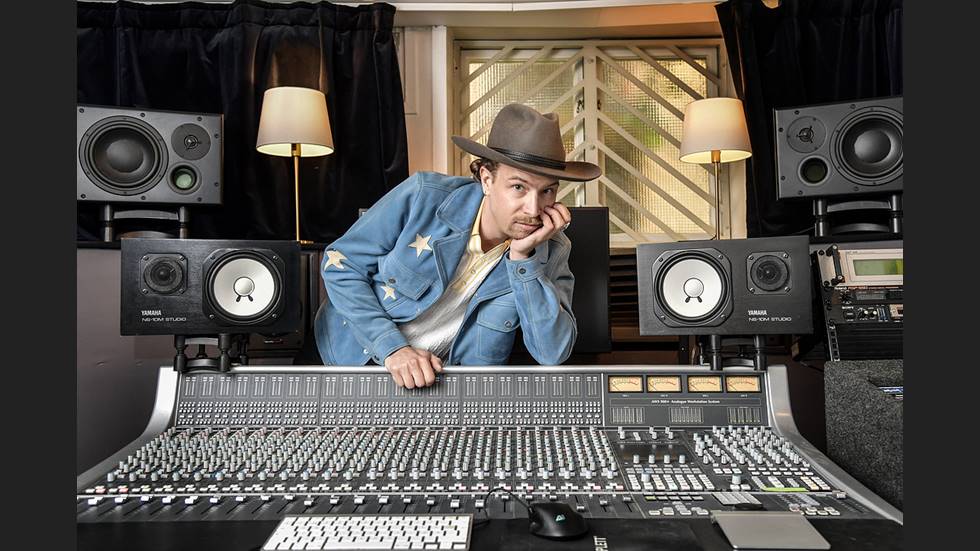← Back
Rudolf Nordström, DJ/Producer
Interview, 20 November 2019
With his flamboyant style, jovial character and gutsy approach to music, DJ and music producer Rudolf “Mr. Tophat” Nordström has become the darling of Stockholm’s fashion and electronic music scene.

Growing up in the southern Stockholm suburb of Högdalen, Rudolf Nordström’s upbringing revolved around the arts.
His parents, Karin Mamma Andersson, an award-winning painter of expressionistic landscapes, and Jockum Nordström, painter, cartoonist, author and illustrator – are two of Sweden’s most celebrated artists in recent history.
In spite of his genetic disposition towards fine art, it was within music that Rudolf found his refuge. As a child he was influenced by the music his father would play in his studio, and he began taking piano lessons. But electronic music eventually demanded his attention – and at 16 he had made a name for himself on the electronic dance music scene in Stockholm.
Fast forward a few years, and Nordström, who’s artist alias is Mr. Tophat, is now a lauded DJ and producer, producing tracks for Swedish megastar Robyn on the regular as well as collaborations with various other acts.
He recently released his own debut album “Dusk to Dawn” on his own independent label and is regarded as one of the most sought-after DJs on the European club scenes.
His original sense of style has also made the fashion world embrace him and he regularly comes out on top on the best-dressed-lists. We caught up with the 29-year-old amid his busy tour schedule to discuss his influences, style, growing up in Stockholm and how his debut album ended up containing a whopping three hours of music.
What is your strongest memory from the summer of 2019?
– I finished my set at Panoramabar (at legendary Berlin nightclub Berghain) at the start of the summer by playing “It’s not Unusual” by Tom Jones. The people there didn’t seem to understand what was going on. I remember one person in particular coming up to me after the show, telling me how they had hallucinated that I had played “Las Vegas-music” at Panoramabar. Well, actually I had.
Another, not so pleasant memory was having to rush my parents dying dog to the vet in July. He is alive today but is unfortunately doing even worse.
Also, to fish for char in tropical heat in Ritsem (Lapland in Sweden’s far north) and dancing in the DJ-booth at Pacha, Ibiza are two other surreal memories from the summer.
Both of your parents are big names within the Swedish art scene, but it wasn’t until you turned eleven that they broke through and established themselves. In what way did it shape you to have seen both the downsides and upsides of being an artist?
– I guess it taught me to trust my gut instincts, first and foremost. To let my feelings guide my decisions.

Your father introduced you to the late, great Swedish music producer Christian Falk when he saw that music was your big passion. What are your fondest memories of him, and what was the most important thing he taught you?
– Christian was a lot like Captain Longstocking, Pippi’s father, both in his style and his character. He was what I like to call an “urban sailor”. There are few people who have influenced and inspired the Stockholm music scene as much as he has over the past thirty years. Many of Sweden’s greatest musicians, authors and artists have all been hugely impacted by his life and work.
– What he primarily taught me was how to mix on the turntables, but above all, he instilled a feeling of confidence in me. A feeling that music is not about right and wrong. That you shouldn’t feel like you have to have had formal training in order to create something magical.
You’ve done a lot of work with Robyn and the two of you have a special creative relationship. How is it that you are so comfortable working together?
– I think it’s because we share a sense of Zen and a similar approach to creativity. That brings a level of confidence to the creative process, which I think is key in trying to reach a genuine form of expression.
“The album became so dense because I wanted to tell an important story”

What is your relationship with your hometown of Stockholm?
– Stockholm is really a dull, cold and grey city for two thirds of the year. But a positive from that is that you go into seclusion and focus on various interests and tasks instead of going out. Come spring, when the light appears and the days become longer, you get a feeling of optimism and joy which is quite extraordinary. That enables you to dive into different projects you have been working on with a new-found sense of energy and power.
In that sense, I think Stockholm can be more of a stable platform than other cities around the world.
Your debut album is titled ”Dusk to Dawn” and contains over three hours of music, divided into three parts. What was the process of making the album like, and why did it end up becoming so dense?
– It became dense because I wanted to tell an important story, but also because the technical aspects of it needed some room. At first, the music I wrote had a very distinct club character to it, but during the course of making the album I brought in more and more trained musicians to lay down parts, which changed both the expression and the direction of where I wanted to go. All of a sudden, Deutsche Grammophon (the iconic classical music label founded in 1898) declared an interest in putting the album out. When that for various reasons didn’t end up happening, I decided to put it out on my own independent label, called Twilight Enterprise.
It prompted me to revisit songs I had omitted back when the album was supposed to have been put out by Deutsche Grammophon. That is the reason for it being so dense, which in hindsight was the right thing to do.
“I think I’ve acquired a better understanding of the separation and comprehension of trends and fashion versus actual style”
You’re also known for your flamboyant style. When did you develop an interest in fashion?
– I think my interest in fashion has always been there. Although I would say style is a more fitting term. From an early age I was fascinated by movies that featured strong style icons. The meaning of expressing myself through my clothes is pretty much the same today as it was in my younger years. I think I’ve acquired a better understanding of the separation and comprehension of trends and fashion versus actual style. That could have been something I picked up during my architectural studies.
What can we expect from you next?
– During the winter I’ll be releasing a few remixes off of “Dusk to Dawn”. DJ Tennis has made one which is nothing short of amazing! I will also be releasing an album from the Swedish post-punk band “Kriget” on my own label, Twilight Enterprise.
That album is really something, it is going to rock!